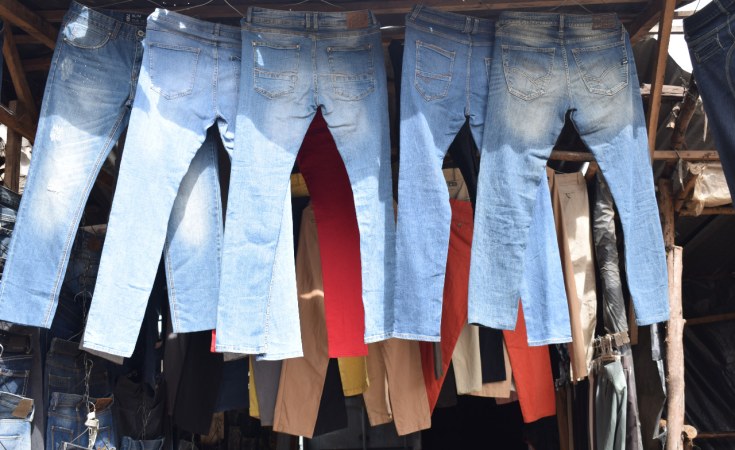As much as one third of the clothing sent from the wealthy west to developing countries every year may be ending up as landfill. Unwearable polyester garments are little more than "plastic waste in disguise," according to a report on Kenya by the Changing Markets Foundation.
Kenya is the destination for 900 million pieces of used clothing every year.
The garments are frequently useless because they are stained and damaged. Or, like the tonnes of skiing outfits and winter wear, the donated clothes are useless in Kenya's climate.
Much of the clothing shipped to the country is made from petroleum-based materials such as polyester.
When the clothes cannot be used, they end up burning in landfills near Nairobi, exposing waste pickers and local residents to toxic fumes.
Tonnes of textiles are also swept into waterways, eventually breaking down into microfibres which enter the foodchain.
"More than one in three pieces of used clothing shipped to Kenya is a form of plastic waste in disguise and a substantial element of toxic plastic pollution in the country," the report by the Changing Markets Foundation says.
Environmental and economic ills
The CMF report is based on customs data as well as fieldwork by the non-profit organisation Wildlight and the activist group Clean Up Kenya.
Between 20 and 50 percent of all donated clothing is not of sufficient quality to be sold on the local secondhand market, the foundation says. And what can be sold has a negative economic impact by undercutting the prices of locally produced new clothes.
Experts say the problem of clothing waste has been exacerbated by the fast fashion boom in wealthier nations, where items, many made from synthetic fibres, are discarded after only a few wearings.
The report calls for the use of non-toxic and sustainable materials in textile manufacturing, for more awareness by consumers, and for the establishment of producer responsibility schemes around the world.
"The Global North is using the trade in second-hand clothing as a pressure-release valve to deal with fast fashion's enormous waste problem," the Changing Markets Foundation says.


